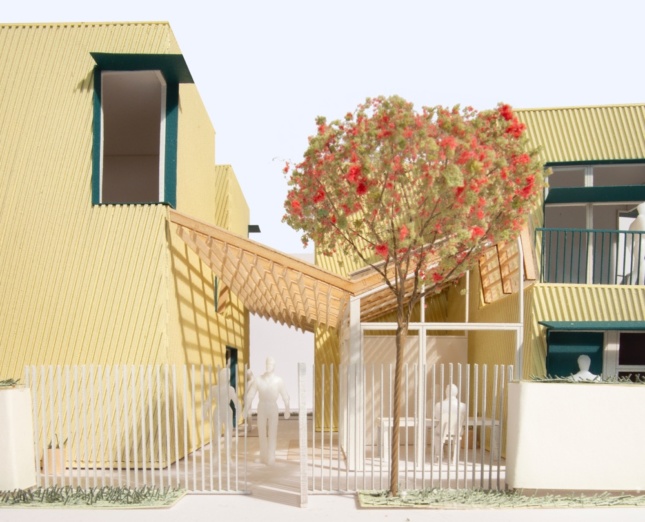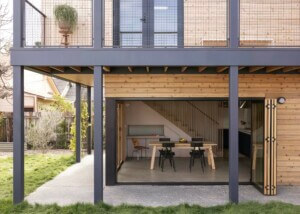The University of California, Los Angeles (UCLA) Ziman Center for Real Estate has launched a unique affordable housing development program geared toward sharing some of the most innovative approaches in the field with housing professionals.
The executive course, a partnership between school administration and private donors, consists of an intensive three-week program that brings together professors in urban planning and real estate, UCLA M.Arch I graduates, and interested students to develop conceptual proposals for affordable housing projects in Los Angeles. The program—developed by Ziman Center professor of finance Stuart Gabriel, UCLA Luskin School of Public Affairs lecturer in urban planning Joan Ling, CityLAB UCLA director Dana Cuff, and others—takes students through the exercise of designing, permitting, and funding their projects with the goal of instilling a “curriculum-based” approach to affordable housing development, according to Ziman Center founding executive director Tim Kawahara.
Most of the students in the program are working professionals who are already engaged with the world of affordable housing development in some form, Kawahara explained, but are looking to expand and enrich their current knowledge. Kawahara said that because many of the professionals working in affordable housing have fallen into the field unexpectedly or work for self-taught non-profit housing developers, there is something of a gap in terms of shared, industry-wide knowledge. That’s where the university’s deep bench of housing policy- and development-focused professors is stepping in to create a formalized approach to help affordable projects come to life.
“The affordable housing crisis in California has reached an untenable level,” Kawahara said. “We have been doing a lot of teaching in the affordable housing space and wanted to find a way to help address the crisis, so we said, ‘Lets do a university-based executive program that will help deliver as many affordable housing and middle income and units as possible.’”

The program’s inaugural class has been a smash success. After planning for an introductory cohort of roughly two dozen students, the Ziman Center received over 140 applications for the program. The university is now looking at ways of expanding the reach of the program, either by raising additional funding to hold the course more often throughout the year or by transforming the curriculum into a syndicated learning package that can be taken up by other universities. Word of the program even reached the California State Legislature, which has asked Ziman Center to give a version of the class to interested lawmakers.
Organizers hope that more projects like the Little Berkeley development by CityLAB-affiliated Kevin Daly Architects come to life as a result of the program. The award-winning eight-unit project organizes residences in a staggered arrangement on a tight urban lot in Santa Monica and uses oddly-shaped interstitual spaces to provide outdoor access for residents.
With California working to allocate tens of billions of dollars in new funding for affordable, supportive, and transitional housing projects, timing for the course and its much-needed curriculum is on the organizers’ side. Across the state, efforts are being made at all levels of governance to bring new funding sources and other incentives to affordable housing developments, while many California cities, including Los Angeles and San Francisco, have instituted so-called linkage fees that require market-rate developers to include subsidized units in their developments. California’s new governor is working to enact a robust pro-housing agenda that aims to deliver up to 3.5 million units in less than a decade.
Perhaps not unexpectedly given this momentum, Kawahara, sees affordable housing as a “growth industry” that might even have the potential to fare better than others if the economy takes a much-predicted downturn. With increasing levels of funding for these projects and political interest in the housing crisis only growing, it’s possible that a sizable percentage of the state’s new housing could come from affordable development initiatives.
There’s even room to grow, because despite the prodigious growth in housing incentives and funding for certain targeted groups, “We still have a low- and middle-income housing affordability problem,” Kawahara said.











